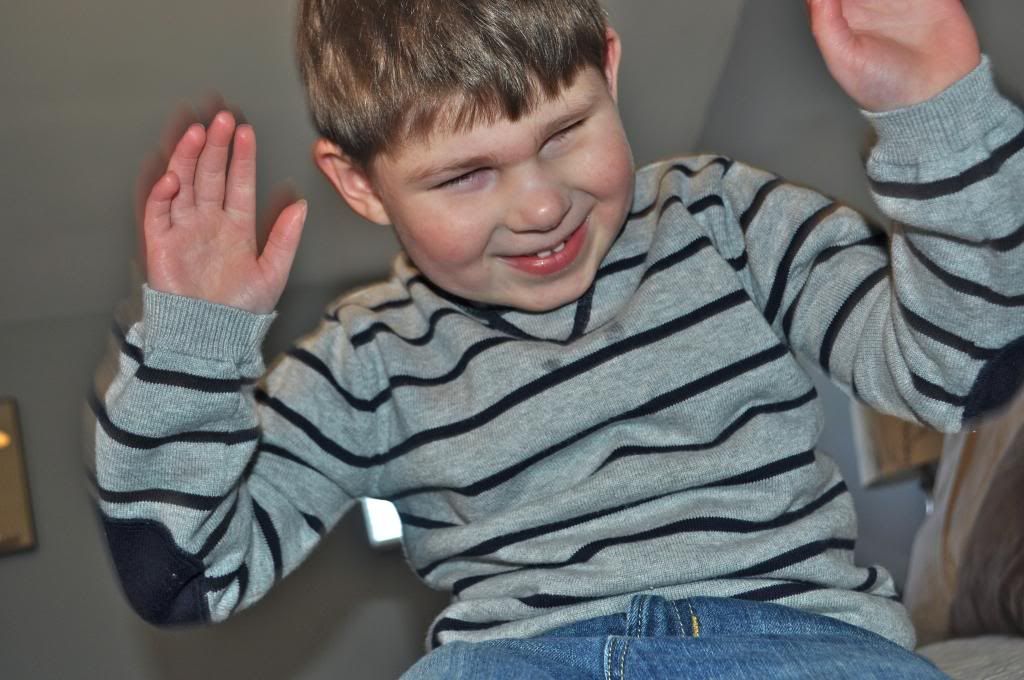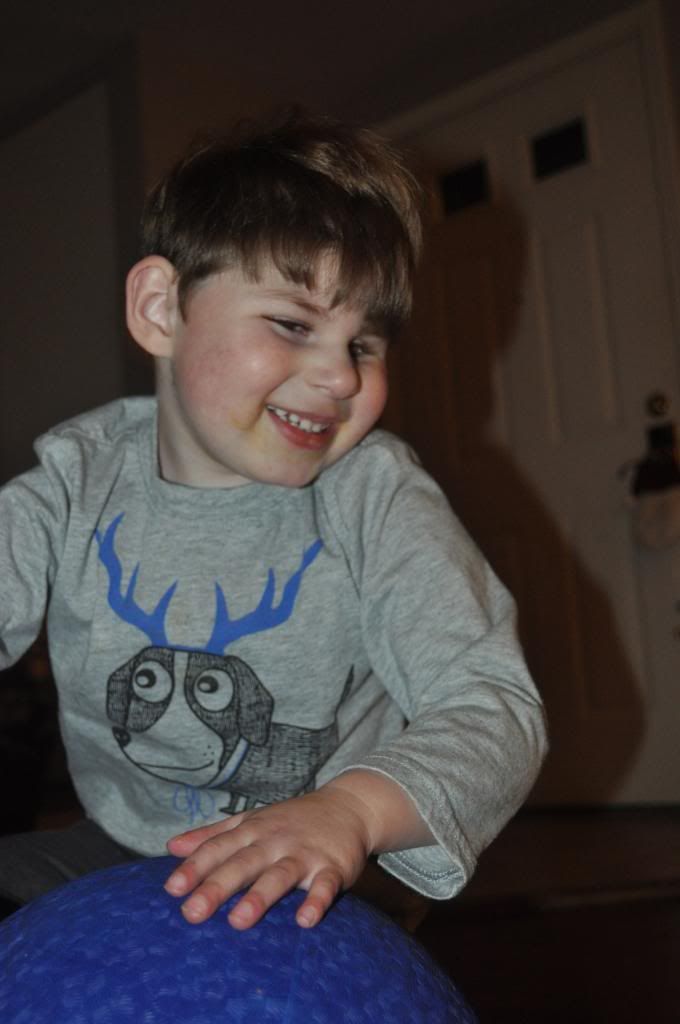- Accessible parking or handicap parking?
- Disabled children or children with disabilities?
 |
| A child having fun! |
Labeling people is unhealthy and distances us from each other. It points out how we are different instead of starting with how we are all like. Notice how you see people pointed out in the news. Is it a story about a child with cystic fibrosis or a cystic fibrosis child? One sounds wrong, doesn't it? It doesn't feel right.
2014 is still just beginning. Let's make an effort to use people first language just because it is important to treat people well. Isn't that a good enough reason?
My son is a child first, and blind second.
Learn more at Disability is Natural or check out this great list of person first comparisons.

Hi Jessica- I love the idea of people first language! I wanted to take the opportunity to add/enlighten that there are exceptions that should be made while writing. (Yes to the child first, disability second as who the child is as a person!)
ReplyDeleteI am a Deaf individual and am comfortable in my own skin (you know that). It's referring to culture (thus the capital D). I also have no problem being called a deaf person (small d refers to medical diagnosis); "person with deafness" seems to suggest it sounds like a disease, tho still usable, acceptable, so-so. You could use "deafness" as describing a hearing level or disability itself.
What I just described looks only at deaf/Deaf individuals (not other disabilities or those with multiple disabilities)… and even within this diagnosis/"sub"-culture, individuals have preferences for how others describe them: Deaf, hard of hearing, deaf, hearing, deafness, hearing loss (applies to those who had hearing and lost it/are losing it). I see less and less use of "hearing impaired", the people who still use that are not keeping up with awareness, abilities, progress, are inadvertently ignorant, in denial, etc.
Orion is a child first, deafblind second. Orion is a Deafblind child. Yes, even deafblind individuals have their own culture. Just like Deaf people, our cultures do not have a country, customary food or attire but we do have our language, stories, habits and identity.
Sorry if I blogged right into your comments box! Ha.
You are always welcome to join in, Hex!
DeleteI took sign language in college and my teacher was Deaf. It really taught me a lot about Deaf culture and was my first real taste of disability awareness and learning about how people can own the labels society give them.
Deaf culture is an important thing to bring up because I don't think most people are aware of it.
I think that through the NFB, we are seeing some of the same pride and community identity for the blind. Maybe someday we will see Blind with a big B!